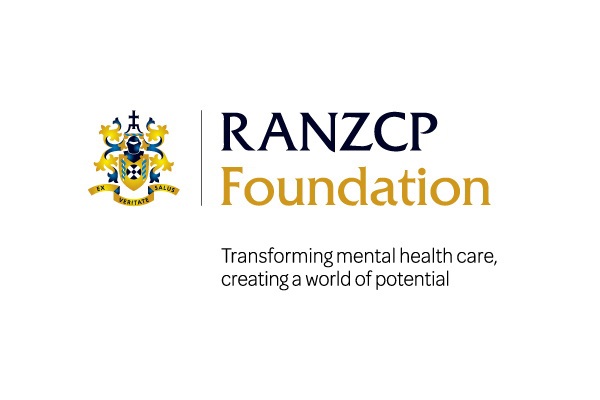Date
Recorded 19 July 2025.
Available on-demand to 30 June 2026.
Organised by
RANZCP and National Centre of Excellence in Intellectual Disability HealthAccess the recording: Intellectual disability and psychiatry
This Masterclass examines the role of psychiatrists in supporting people with intellectual disability and the high prevalence of mental health conditions in this population.
Participants gain practical strategies for assessing and managing mental illness and behaviours of concern through expert presentations and a lived experience discussion. The session emphasises reasonable adjustments, person-centred care, and collaborative approaches—ideal for psychiatrists seeking greater confidence in this area.
Learning outcome: Build knowledge, skills, and confidence in working with people with intellectual disability and co-occurring mental illness and/or behaviours of concern.
‘“This webinar was excellent—the topic, presenters, and list of resources were just awesome. Thank you for the opportunity to attend and broaden my knowledge about mental health, people with intellectual disability, and the important role psychiatrists play in their care."
“The discussions, questions, and overall learning experience were extremely stimulating. What I liked most was the talk by Tahli Hind on lived experience. The program leader, Professor Julian Trollor, was exceptionally engaging and outstanding.”
Presenters

Scientia Professor Julian Trollor AM
Why it matters: about the mental health of people with intellectual disability, and the psychiatrist’s role
People with intellectual disability represent approximately 2% of the population. People with intellectual disability experience significantly worse health and mental health outcomes than people without intellectual disability. The risk of psychiatric conditions in this population is related to a range of medical, social and psychological factors. Some genetic causes of intellectual disability also predispose this population. Despite disproportional mental health needs, access to effective mental health treatments and supports remains a problem for this population. This presentation reviews current knowledge about mental health and wellbeing for this group and examines what psychiatrists can do to improve mental health outcomes.
Participants will be able to understand and apply knowledge related to the health and mental health experiences of people with intellectual disability.
Why it matters: about the mental health of people with intellectual disability, and the psychiatrist’s role
People with intellectual disability represent approximately 2% of the population. People with intellectual disability experience significantly worse health and mental health outcomes than people without intellectual disability. The risk of psychiatric conditions in this population is related to a range of medical, social and psychological factors. Some genetic causes of intellectual disability also predispose this population. Despite disproportional mental health needs, access to effective mental health treatments and supports remains a problem for this population. This presentation reviews current knowledge about mental health and wellbeing for this group and examines what psychiatrists can do to improve mental health outcomes.
Participants will be able to understand and apply knowledge related to the health and mental health experiences of people with intellectual disability.

Associate Professor Rebecca Koncz
Making sense of mental illness and behaviours of concern: Approach to the assessment
People with intellectual disability experience high rates of unmet mental health needs, which intersect with the disability and co-occurring physical health conditions. Behaviours of concern - that is, behaviours that pose risks to the individual’s or others’ safety or quality of life - are a common reason for psychiatric presentation. These behaviours may signal, mask or complicate underlying mental illness or physical health conditions, making assessment challenging. This session provides a structured framework to understand the interplay between behaviour, mental illness, physical health, and disability, and to equip psychiatrists to more effectively assess behaviour change in this population.
Participants will identify the diverse factors that can contribute to behaviour change in individuals with intellectual disability, including mental illness, and develop an effective assessment framework.
Making sense of mental illness and behaviours of concern: Approach to the assessment
People with intellectual disability experience high rates of unmet mental health needs, which intersect with the disability and co-occurring physical health conditions. Behaviours of concern - that is, behaviours that pose risks to the individual’s or others’ safety or quality of life - are a common reason for psychiatric presentation. These behaviours may signal, mask or complicate underlying mental illness or physical health conditions, making assessment challenging. This session provides a structured framework to understand the interplay between behaviour, mental illness, physical health, and disability, and to equip psychiatrists to more effectively assess behaviour change in this population.
Participants will identify the diverse factors that can contribute to behaviour change in individuals with intellectual disability, including mental illness, and develop an effective assessment framework.

Tahli Hind
What I Wish You Knew: In Conversation with a Lived Experience Perspective
This session provides insight into what a person with lived experience wishes that psychiatrists knew about working with people with intellectual disability. This population often don’t receive mental healthcare that suits their needs. Some people don’t feel included in their mental health decisions or understand what they need to do to improve their mental health. If we address these issues, we can help to reduce the poor mental health outcomes seen for people with intellectual disability. In conversation, we unpack how psychiatrists can make mental healthcare more accessible through effective communication techniques and reasonable adjustments.
Participants will gain knowledge on how to work with and communicate effectively with people with intellectual disability.
What I Wish You Knew: In Conversation with a Lived Experience Perspective
This session provides insight into what a person with lived experience wishes that psychiatrists knew about working with people with intellectual disability. This population often don’t receive mental healthcare that suits their needs. Some people don’t feel included in their mental health decisions or understand what they need to do to improve their mental health. If we address these issues, we can help to reduce the poor mental health outcomes seen for people with intellectual disability. In conversation, we unpack how psychiatrists can make mental healthcare more accessible through effective communication techniques and reasonable adjustments.
Participants will gain knowledge on how to work with and communicate effectively with people with intellectual disability.

Dr Catherine Franklin
Approaches to managing mental illness and behaviours of concern
This session provides an overview and approach to the management of mental illness and behaviours of concern in individuals with intellectual disability.
Participants will learn about available evidence-based therapeutic interventions and how to access these. Emphasis is placed on person-centered approaches, collaboration with support teams, and understanding the complex interplay between intellectual disability and mental health. They will gain skills for improving clinical outcomes while reducing challenging behaviors through compassionate, informed care and knowledge of available treatment options.
Approaches to managing mental illness and behaviours of concern
This session provides an overview and approach to the management of mental illness and behaviours of concern in individuals with intellectual disability.
Participants will learn about available evidence-based therapeutic interventions and how to access these. Emphasis is placed on person-centered approaches, collaboration with support teams, and understanding the complex interplay between intellectual disability and mental health. They will gain skills for improving clinical outcomes while reducing challenging behaviors through compassionate, informed care and knowledge of available treatment options.
What's included
- Masterclass recording
- Speaker presentations and Q&A highlights
- Access until 30 June 2026
- Earn up to 3 CPD hours
Pricing
| Member type | Price |
|---|---|
| RANZCP Fellow or Affiliate member | $195 |
| RANZCP trainee | $160 |
| PIF member | $100 |
| Other medical practitioner | $215 |
| Allied health / non-medical | $160 |
Purchase recording now
Give back
Purchasing this recording supports psychiatric research.
CPD Hours
This Masterclass will give you up to 3 CPD hours.
RANZCP Member:
We will upload your registration to MyCPD portal as a draft activity. Instead of receiving a certificate of attendance, you'll need to log in to your MyCPD account to complete a reflection and submit your draft activity. Instructions on completing draft activities.
Others:
If you are not a member of the RANZCP, you may request a certificate of attendance by emailing events@ranzcp.org. Please check with your certifying organisation if you are eligible for CPD points for the masterclass.
Delegate Cancellation
To cancel your registration, please email foundation@ranzcp.org. Refunds are provided in accordance with the RANZCP refund policy.
Disclaimer
This session is a Member benefit of the RANZCP and for educational purposes only.
The information may represent views of the author and not necessarily the views of the College. Information is subject to change and the College does not warrant that the information is current at the time of viewing and accepts no liability for any loss or damage suffered by you or a patient directly or indirectly as a result of relying on information provided and should not be a substitute for individual clinical judgement.
By accessing e-learning sessions you also agree to the RANZCP Website Terms of Use Agreement.
Recording
This Masterclass was recorded on the 17 July 2025. The on-demand version will be available until 30 June 2026.



